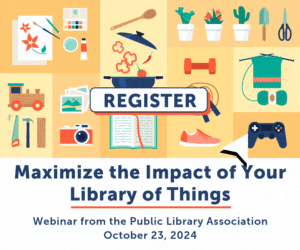Power to the People
This issue’s Internet Spotlight column is taking shape at 38,000 feet, somewhere over the middle of the United States. Flying back from the 2010 Computers in Libraries Conference, both our heads are full of fresh ideas, things to research, opinions to think about, questions that need to be answered, new friends and colleagues, and … a dead battery or two.
It’s happened to almost all of us. Even if you don’t read this column electronically, you’ve likely had your mobile phone run out of juice, right? Or maybe your digital music or media player, laptop, netbook, or maybe that new iPad? This time, it was a brand spanking new Amazon Kindle that ran out of battery power. Before heading to Washington, D.C., for the conference, Michael bought a shiny new e-book reader. He loaded it up with books and happily hit the road, ready for all sorts of happy reading and discovery.
Of course the five-hour-plus flight to the conference was filled with presentation review and polishing. We can both testify that five hours of PowerPoint on a full plane is no easy feat. But the thought of the long return flight, nice and relaxed, tucked into a couple of good books that have been on the “can’t wait to read” list for a long time, was helping keep Michael’s stamina up.
So imagine his dismay, when, as soon as the flight attendant announced shortly after takeoff that we could now turn on our electronic devices, Michael opened up his nice new Kindle only to read “Critical battery. Your battery is empty. To continue using your Kindle connect to a power source. It may take a few minutes of charging before your Kindle starts.”
“Oh no you didn’t, Amazon! You and your cursed battery power!”
When we research and talk about gadgets, battery life does come up quite a lot, even though almost nobody talks about it in presentations. Truth is— the Internet wouldn’t work without them. All those backbone servers, data centers, and network devices are plugged in to nearly fail-safe power sources, and have pricey backup battery systems in place too—keeping your Web browsing, researching, and texting (mostly) nice and seamless. And as the future becomes more and more ubiquitous and mobile in regards to Internet access, we’ll continue to see more emphasis on power.
Thankfully, battery power has made impressive leaps. If you had a portable music player ten or even just five years ago and have since upgraded, you need no further evidence. The new laptop I’ve been eyeing lately claims an eight-hour battery life! It’s to the point now where batteries have increased capacity, and that larger capacity is often combined with software that helps us manage power consumption. Because of these developments, many of us manage not to notice power issues with our mobile computing devices.
The most interesting things happening with battery life right now are in the research phase. There are truly promising things on the horizon, including superfast charging, longer battery life, and more environmentally friendly options. As surely as we have all witnessed stunning improvements to wireless connectivity, memory capacity, size, and design in the technology we use every day, our power needs are being improved, too.
Technology improvements are great! While that’s the case, let’s also remember not to be too overconfident with technology. We should always be aware that no matter how amazingly cool the tool is . . . it’s still just a tool. And it is imperfect. And it has a long way to go. Each newfangled technology device requires very specific care and maintenance that we shouldn’t take for granted. This, with all respect to the beauty of the unparalleled community connection and knowledge that new techie toys help provide, makes us both immediately think of libraries and the future of libraries.
Just as our devices need occasional upgrades and always have to be recharged, our libraries need similar maintenance. Our big goal is to help make sure libraries don’t “run out of juice.” We don’t think that libraries will thrive (or even survive) if we can’t crack the nut that is keeping us from offering services on par with iTunes, Netflix, and Amazon.
When it comes to content, access, and being where the users are, these electronic devices can certainly help. As long as you have a place to plug them in. And as long as you have content to put on those devices so that when they’re checked out, your patrons aren’t listening to nothing. That’s assuming that (1) the new giants in the electronic content industry will actually allow you to buy content that you then loan out for free, and loan out the devices that play their digital-rights-managed content; and (2) that patrons will even want to borrow these things from the library (because they may already have purchased their own devices and content).
But those are big ideas and fodder for another article. In an age when we can all fly across the country, how can we still be running out of battery power? Fortunately the battery on this laptop has lasted long enough tofinish writing this col . . .









